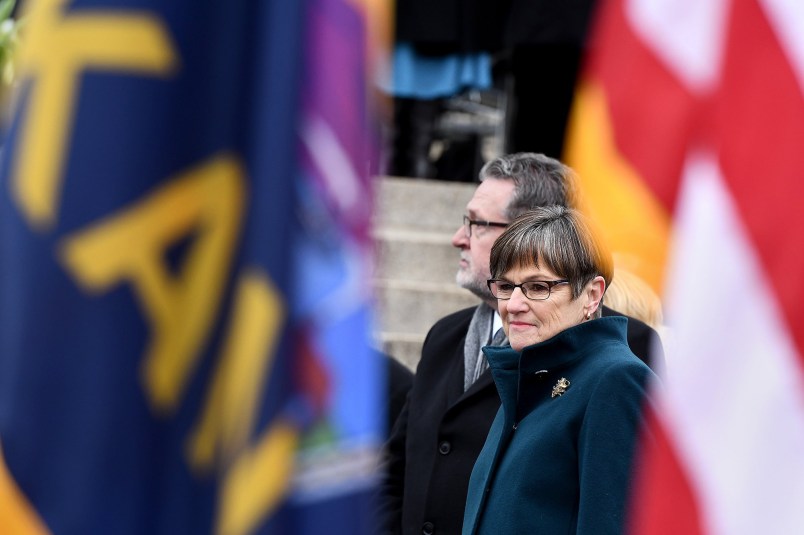The Kansas Supreme Court sided with Gov. Laura Kelly (D) Saturday, allowing her executive order limiting church gatherings amid the coronavirus pandemic to stand despite Republican lawmakers’ efforts to overturn it.
In an expedited decision made just one day after Kelly sued, the Court delivered a very narrow ruling pertaining only to the authority of the standing legislative council to revoke Kelly’s order. It did not grapple with the larger questions of religious freedom or public health.
The Legislative Coordinating Council is comprised of seven congressional leaders and meant to act in place of the full legislature, which has been out of session since mid-March. One day after Kelly issued her order on April 7, the LCC voted along party lines to shoot it down: five Republicans to two Democrats.
The Court, in its majority decision, determined that the LCC did not have the power to overturn the order, based on the text of the resolution the legislature passed to set the council up initially. The court stopped at the water’s edge of what powers the LCC did have in place of the full legislature.
In concurrent decisions, two of the justices focused on the underlying issue of whether the LCC can absorb the oversight powers vested in the full legislature by a mere resolution rather than a statute.
In a sign of the times, justices heard the lawyers’ oral arguments on Saturday via a Zoom teleconference.
The decision was a victory for Kelly, who included previously exempted mass gatherings in her executive order out of fear that some churches would buck CDC guidelines on Easter Sunday.
Still, per local reporting, not every church adhered to the order. At least two in the state went ahead with normal Easter masses.
Last week, state officials sent conflicting messages. The state’s Attorney General, Republican Derek Schmidt, stated that Kelly’s orders were sound public health advice but told prosecutors and police not to enforce it, describing it as a possible violation of constitutional rights.
Republicans sounded the same note when they overturned the order, claiming that Kelly was depriving Kansans of their right to worship.
Read the Court’s decision here:



